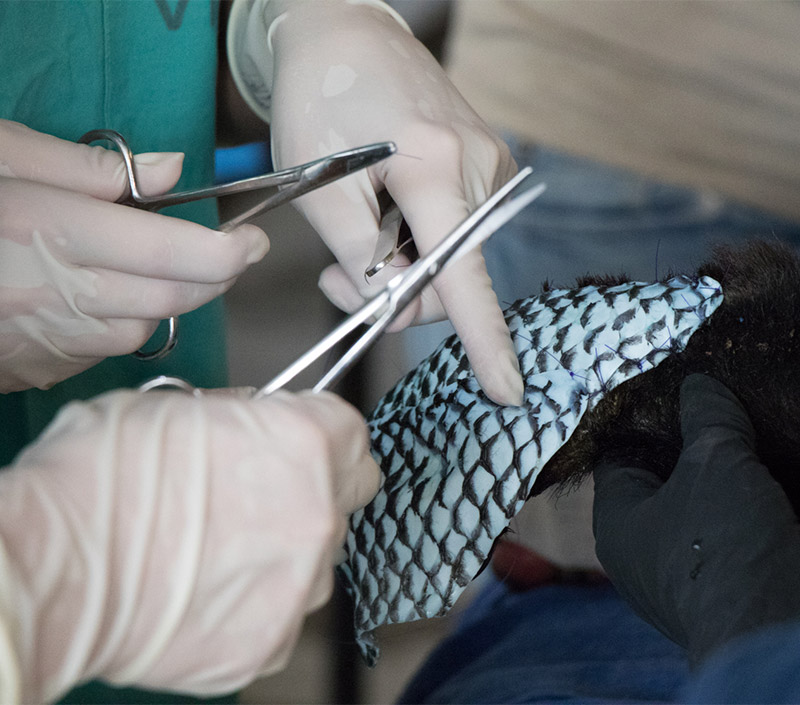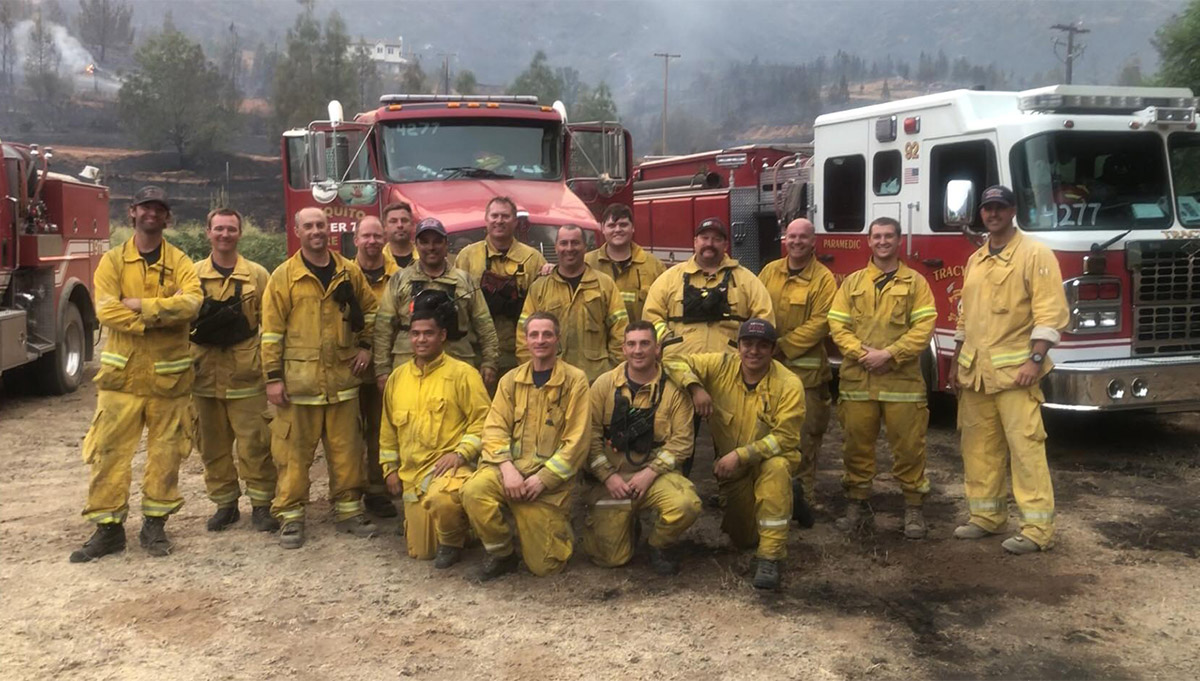State wildlife officers and a UC Davis veterinarian have again used fish skins and other novel forms of pain management to treat a wild animal: a bear cub injured in the Carr Fire.
Jamie Peyton, chief of the Integrative Medicine Service at the UC Davis Veterinary Medical Teaching Hospital, used tilapia skins as bandages on the burned paws of a year-old cub discovered last week by a PG&E contractor near Redding. She also used cold laser therapy, acupuncture and a salve to ease the bear’s pain, the California Department of Fish and Wildlife said.

The female bear cub was found lying in ash on Aug. 2 near Whiskeytown, and state wildlife officers and staff drove her to a Rancho Cordova facility for treatment. She showed a healthy appetite, but wasn’t able to walk on her injured paws.
“Generally speaking, an animal that has survived a fire and is walking around on its own should be left alone, but that wasn’t the case here,” said Jeff Stoddard, an environmental program manager and acting regional manager with the Department of Fish and Wildlife.
The cub is the third bear to receive this kind of treatment from Peyton and the Department of Fish and Wildlife. Two bears injured in the Thomas Fire in January were released back into the wild after having the sterilized fish skin bandages applied to their paws, and GPS tracking shows them doing well, state wildlife officers said.
“This little bear is younger and spunkier than the two bears we treated in January, which is kind of a mixed blessing,” said Deana Clifford, a senior wildlife veterinarian with the Department of Fish and Wildlife and an assistant clinical professor at the UC Davis School of Veterinary Medicine who is overseeing the cub’s care. “She’s very healthy other than her burned paws, but she’s also very active, and we may find that she is more curious and takes the bandages off much faster than our previous patients did. We’ll need to monitor her closely and adjust treatment as necessary, but we’re optimistic that she’ll make a full recovery in due time.”
Firefighters return after long deployments

Updated 11 a.m. Monday: The UC Davis crew fighting the Ferguson Fire with Brush Truck 34 returned to campus overnight Saturday (Aug. 11).
"All UC Davis personnel are now back and on regular assignment," Fire Chief Nate Trauernicht said.
•••
UC Davis firefighters are returning to campus after weeks on the front lines of two of the state’s biggest blazes, but it’s likely they won’t have long to rest.
Capt. Steve Dunn, is back from the Carr Fire near Redding where he was dispatched July 27 as the leader of a task force of firefighters from various agencies.
The campus Fire Department also has been assisting on the Ferguson Fire in and near Yosemite. One four-person crew spent two weeks on the fire, and now their replacements — Capt. Tait Nilsson, engineer Kyle Dubs, and firefighters Gerrit Dykzeul and Ryan Tooley — are nearing the end of their two-week maximum deployment. Fire Chief Nate Trauernicht said he expects them back on campus on or around Sunday (Aug. 12).
“We are bringing them home because a series of new fires have started and we want the whole strike team (and) our folks at home to get some rest before what appears to be a looming re-deployment,” the chief said.
Fire updates as of this morning (Aug. 10), according to CalFire and the U.S. Forest Service: